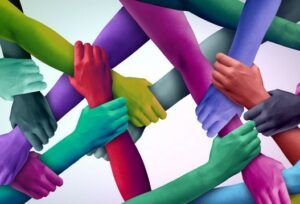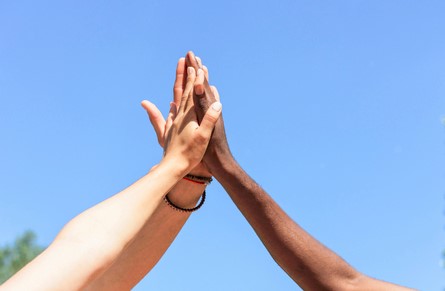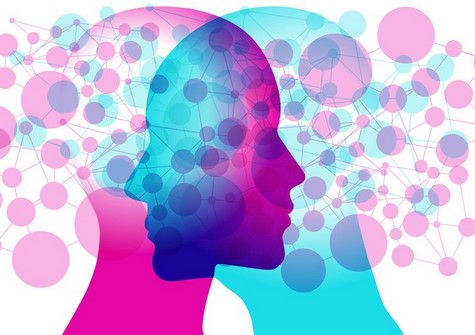The human race, a species marked by its remarkable adaptability, resilience, and capacity for innovation, has a rich and complex history. In this article, we will explore the story of the human race, from our evolutionary origins to our diverse cultures, achievements, and the challenges we face as a global community.

The Origins of the Human Race:
- Evolutionary History: Homo sapiens, our species, evolved in Africa around 300,000 years ago. Our ancestors, including Homo habilis and Homo erectus, gradually developed the traits that distinguish modern humans.
- Migration: Humans embarked on a remarkable journey of migration and exploration, spreading across the globe. From Africa, they settled in Europe, Asia, the Americas, and the Pacific Islands, adapting to diverse environments.
Cultural Diversity:
- Languages: The human race speaks over 7,000 languages, each a unique window into culture and heritage. Linguistic diversity reflects our capacity for communication and expression.
- Cultural Traditions: From art and music to cuisine and rituals, cultural traditions vary immensely, shaping the identities and values of different human communities.
- Religion and Belief Systems: A myriad of religions and belief systems offer guidance and meaning to people around the world. These systems influence ethics, values, and worldviews.
Innovation and Achievements:
- Agriculture: The development of agriculture around 10,000 years ago marked a pivotal moment in human history. It allowed societies to settle, build cities, and cultivate civilizations.
- Technological Advancements: Humans have continually pushed the boundaries of technology, from the wheel to the printing press, electricity, the internet, and beyond.
- Exploration and Discovery: From the voyages of Christopher Columbus to the moon landing, humans have displayed an insatiable curiosity and drive to explore the unknown.
Challenges and Triumphs:
- Conflicts and Wars: The human race has faced numerous conflicts and wars throughout history. While these events have caused immense suffering, they have also spurred advances in diplomacy and cooperation.
- Disease and Epidemics: The human race has grappled with devastating pandemics like the Black Death and, more recently, COVID-19. These challenges have catalyzed advancements in medicine and public health.
- Environmental Concerns: As the dominant species on Earth, humans have had a profound impact on the planet. Climate change, deforestation, and habitat loss are pressing issues that require global cooperation.
Global Community:
- Interconnectedness: In today’s world, the human race is more interconnected than ever before. Technology, travel, and trade have brought us closer together, highlighting our interdependence.
- Cultural Exchange: The exchange of ideas, art, and culture across borders enriches the human experience, fostering understanding and tolerance.
- Humanitarian Efforts: Organizations and individuals worldwide work tirelessly to address global challenges, from poverty and hunger to disaster relief and education.
The Human Race in the 21st Century:
- Technological Revolution: The digital age has transformed how we live, work, and communicate. Artificial intelligence, biotechnology, and renewable energy offer unprecedented opportunities.
- Global Challenges: Climate change, inequality, and political tensions pose significant challenges. However, the human race’s ability to collaborate and innovate provides hope for addressing these issues.
- Unity in Diversity: Celebrating our differences while recognizing our shared humanity is essential in navigating the complexities of the modern world.
Conclusion
The human race’s story is a testament to our adaptability, ingenuity, and resilience. From our origins in Africa to our global presence today, we have demonstrated the capacity to overcome challenges, drive progress, and build a diverse tapestry of cultures and achievements. As we continue our journey into the future, the human race faces complex global issues that require collaboration and unity. By drawing on our shared humanity and embracing the diversity that enriches our collective experience, we can navigate the challenges ahead and shape a more inclusive and sustainable world for generations to come.



